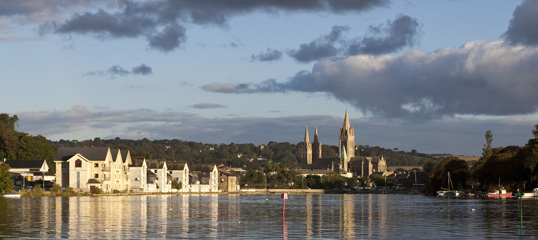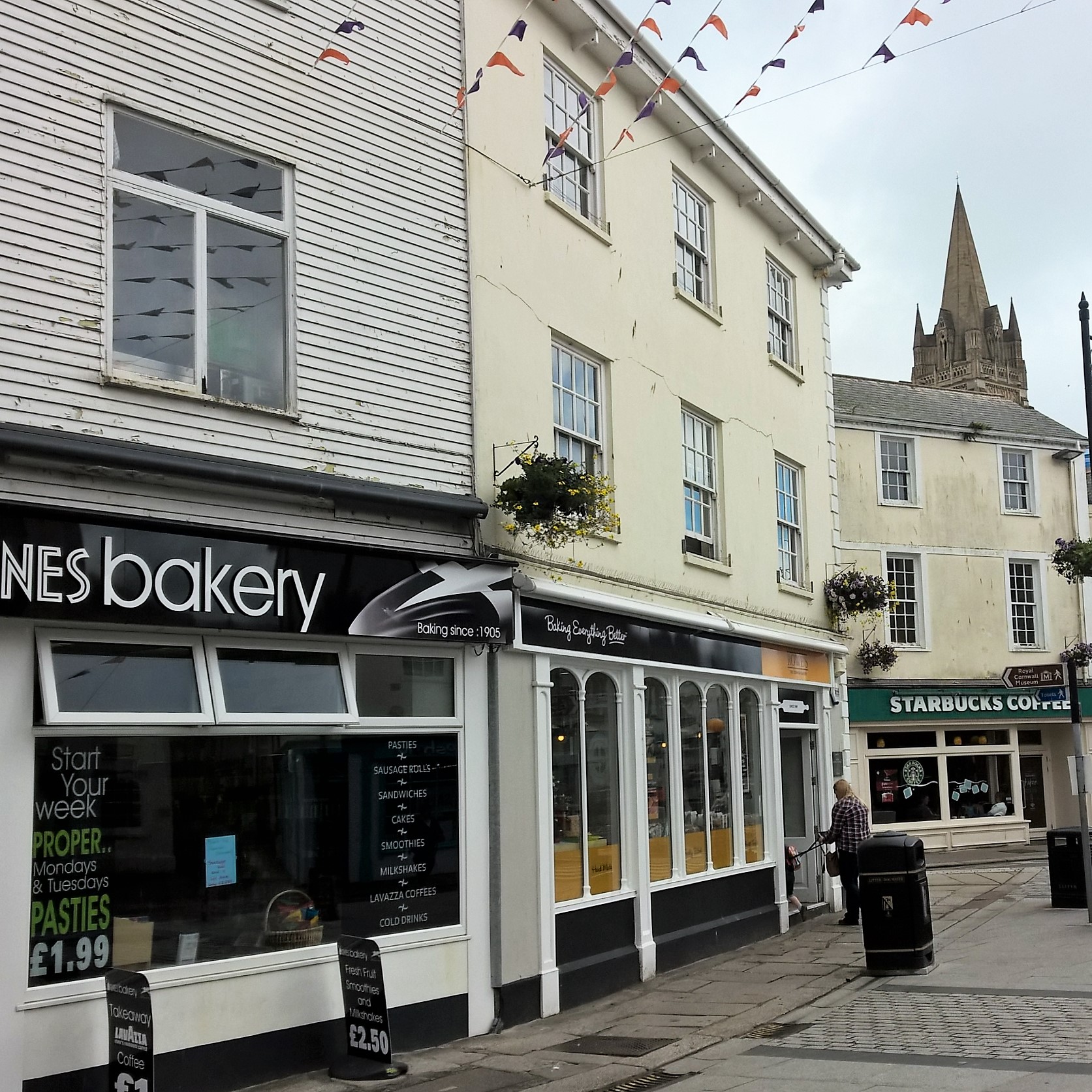A Good Debate
The debate between Mike Burgess and Luci Isaacson about how to prepare Truro for the future impacts of climate change was lively and well attended by nearly forty people at Truro City Council. Mr Burgess explained that his primary concern is to consider the projections of increase in sea levels and to think about how to protect the town from possible future flood and inundation. He referred to the recently approved ‘Shoreline Management Plan’, and spoke about the recent works undertaken at Lighterage Quay. These have renewed the central working platform for the vibrant Port of Truro (after Fowey, Cornwall’s largest cargo-handling port) and improved the flood prevention measures. Mr Burgess’s suggestion was that, somewhere in the Carrick Roads, if matters were to be effectively secured, some form of barrier would eventually be required – in the same way as across the River Thames.
He had suggested that, if a barrier was constructed, it could be used to support a road as well as performing its primary purpose of holding back the tide. However, he also acknowledged that it was not essential to the barrier, and that it would need to be part of the wider network, which may be difficult, as had been previously found.
Luci Isaacson, works to develop interest and commitment in changes to personal lifestyles which can, collectively affect the carbon levels generated by society and improve the quality of life and self-esteem for those who participate. She accepted that, if consequences of climate change became seriously threatening to infrastructure and trade, then physical measures would be needed. But, she challenged that facilitating further increases in road traffic would be a sensible way to achieve effective protection, as it would worsen carbon generation (unless science and engineering can develop alternative and harmless means of propulsion using materials which are not in short supply). She described the scheme of pledges to change lifestyle which she evolved during the Copenhagan Climate Change Conference campaign and which is still developing, and which she champions. Personal commitment and action is central to managing climate change, she said.
After the presentations of both speakers there followed a lively and wide-ranging debate during which people acknowledged that some form of barrier may be needed, that the lock gates at Lighterage Quay are a start, that there would be impacts of saturation under the town centre (which is built on an estuarine delta. Mr Parker of Park Farm gave a passionate description of his work to shape his land to be an amenity for Truro and a key factor in off-setting climate change. He pointed out that he has been able to plant 160,000 trees over the past few years and that, with the AONB reaching into his farm, any road proposal would be vigorously and justifiably resisted!
Sarah Weatherell, Transition Truro Transport Group, outlined to develop of Car Clubs, a means of making the most efficient use of fewer cars to get people to where they needed to be.
Drawing the evening to a close, Truro Civic Society Chairman, Bert Biscoe, thanked both the speakers. He highlighted that part of the role of the Society should be to examine difficult and challenging questions and to encourage debate within the community – in this success had been achieved at this event. He looked forward to further debates and suggested that one might be to look at whether we should encourage conservation of the best of Truro’s stock of modern ‘brutalist’ buildings, including his ‘beloved’ Police Station!
He also pointed out that assembling in January to think and talk was a good way of mitigating climate change! The event attracted a number of new members – to whom – ‘Welcome!’







